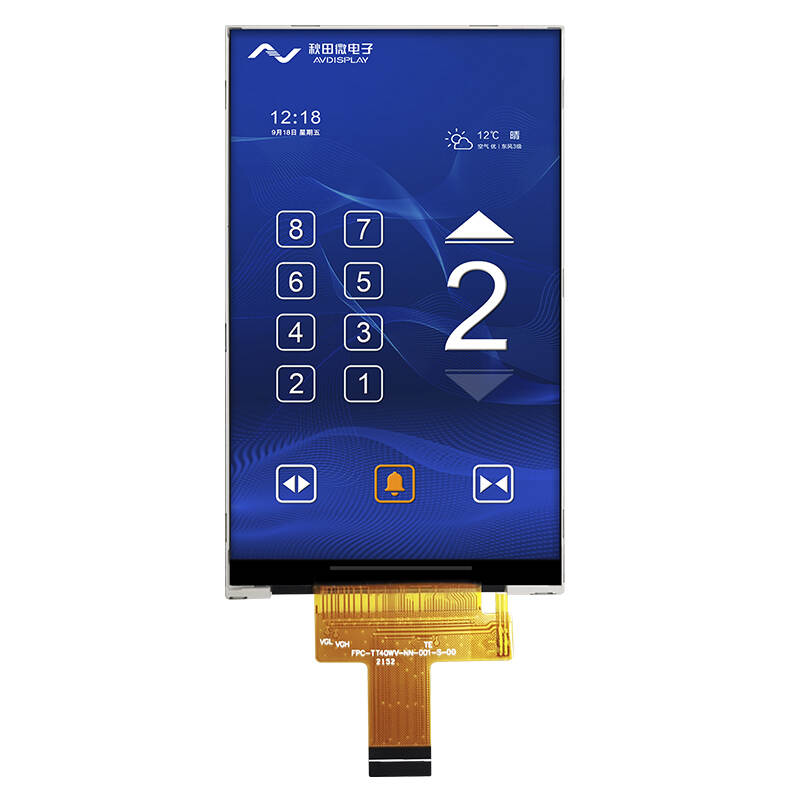Email format error
Email cannot be empty
Email already exists
6-20 characters(letters plus numbers only)
The password is inconsistent
Email format error
Email cannot be empty
Email does not exist
6-20 characters(letters plus numbers only)
The password is inconsistent


In today’s world, the demand for high-quality display panels is increasing. One of the most popular types of display technology is IPS (In-Plane Switching) LCD panels. These panels are known for their excellent color quality and wide viewing angles. For companies looking to buy these displays, selecting the right IPS LCD panel factory is very important. But what should you look for in a factory? Why does it matter so much?
This blog will explain the main things to consider when choosing an IPS LCD panel factory, why quality is important, and how this decision can affect the final product. We will also look at how IPS panels are made, the standards in the industry, and the future of this technology.
An IPS LCD panel is a type of screen that uses a technology called in-plane switching. This technology helps to improve color quality and gives better viewing angles compared to traditional displays. The main benefit of IPS panels is that they provide more accurate and consistent colors. This makes them ideal for devices that require high-quality displays, such as phones, computers, and televisions.
When buying IPS LCD panels, the factory you choose has a big impact on the final quality. Making IPS panels involves complex processes, special equipment, and high-quality materials. Choosing the right factory ensures that the display will meet high standards for color, durability, and performance.
Quality is especially important for products that need accurate colors, like design monitors or gaming screens. A factory that has good quality control can help avoid problems like dead pixels or color errors, ensuring the display works well and lasts longer.
When selecting an IPS LCD panel factory, you need to keep a few things in mind. Here are the most important points:
A factory with years of experience in making IPS LCD panels is more likely to provide a high-quality product. Check the factory's reputation and ask for references or examples of their previous work.
Make sure the factory can produce panels in the size and resolution that you need. Some factories specialize in large displays, like for TVs, while others focus on smaller screens, like for phones.
Choose a factory that has a strong R&D team. This shows that the factory is always trying to improve its products and stay up to date with the latest technology in display panels.
Check if the factory follows strict quality control procedures. Look for certifications like ISO 9001, which ensures that the factory meets high standards for quality management.
Make sure the factory has a reliable supply chain to meet production deadlines. A factory with good connections to suppliers will be able to provide materials on time and avoid delays.
Making IPS LCD panels involves several important steps. Each step needs to be done carefully to make sure the panel works well. Here is an overview of the process:
The first step is to prepare the glass that will form the base of the display. The glass is cleaned to remove any dust or dirt that could affect the display quality.
A thin layer of liquid crystals is placed between the two glass sheets. The liquid crystals are aligned in a way that allows them to control the light that passes through the screen.
In this step, the liquid crystals are aligned in parallel to the screen, which is what makes IPS technology different from traditional displays. This alignment helps the screen produce better colors and clearer images from different angles.
A color filter is added to make sure the screen can display red, green, and blue colors correctly. Then, a polarizer is added to control the light that passes through, helping the display achieve high-quality images.
In the final step, the display is assembled, and all the parts are put together. The display is tested for any problems, like dead pixels or color errors. Only the panels that pass the tests are sent out.
The IPS LCD panel factory you choose should follow industry standards to ensure the product is of good quality. Some important certifications include:
These certifications help ensure that the products you get from the factory are safe, reliable, and high-quality.
Research and development (R&D) play a big role in improving IPS LCD panels. A factory that invests in R&D can develop new technologies and improve the quality of its panels. R&D teams work on making panels more energy-efficient, improving color accuracy, and reducing production costs.
As technology changes, new display types like OLED and microLED are becoming popular, but IPS panels are still widely used because they offer good quality at a lower cost. R&D will help keep IPS panels competitive in the future.
Finding a reliable IPS LCD panel factory is not always easy, but there are some ways to make sure the factory is trustworthy:

Looking ahead, there are some exciting trends in the IPS LCD panel industry: